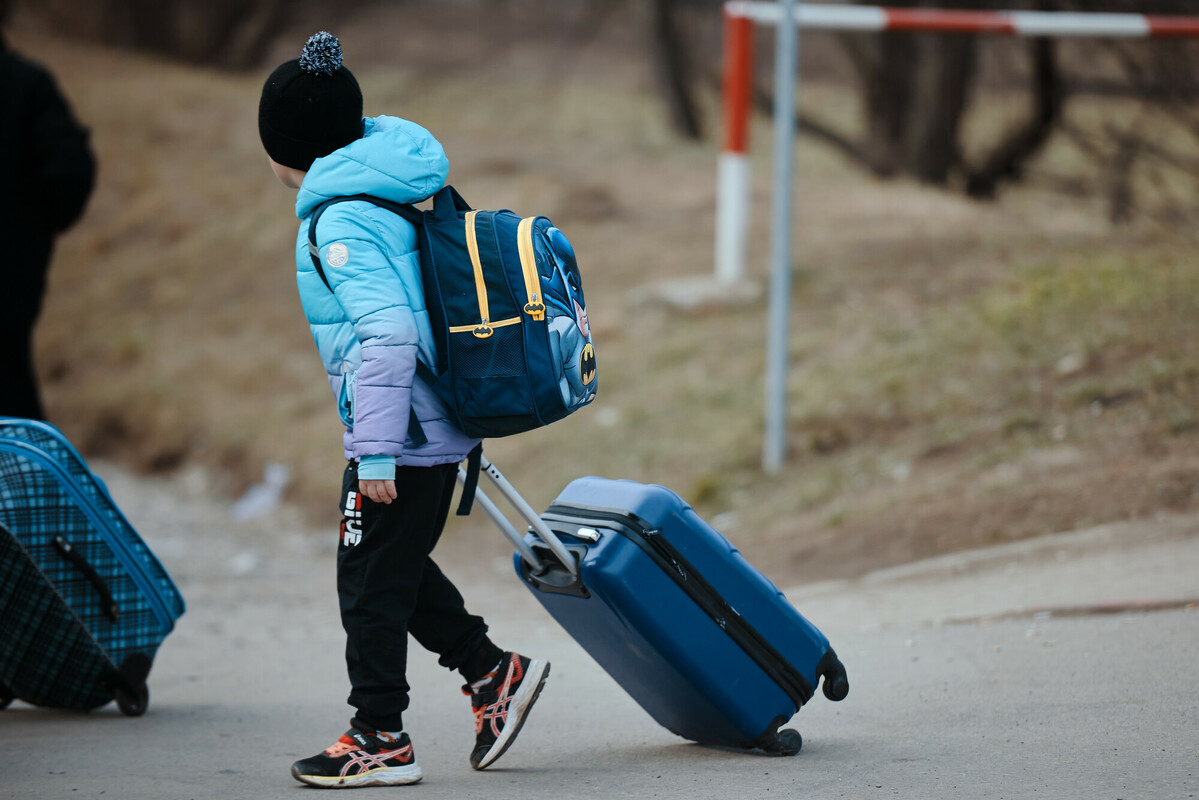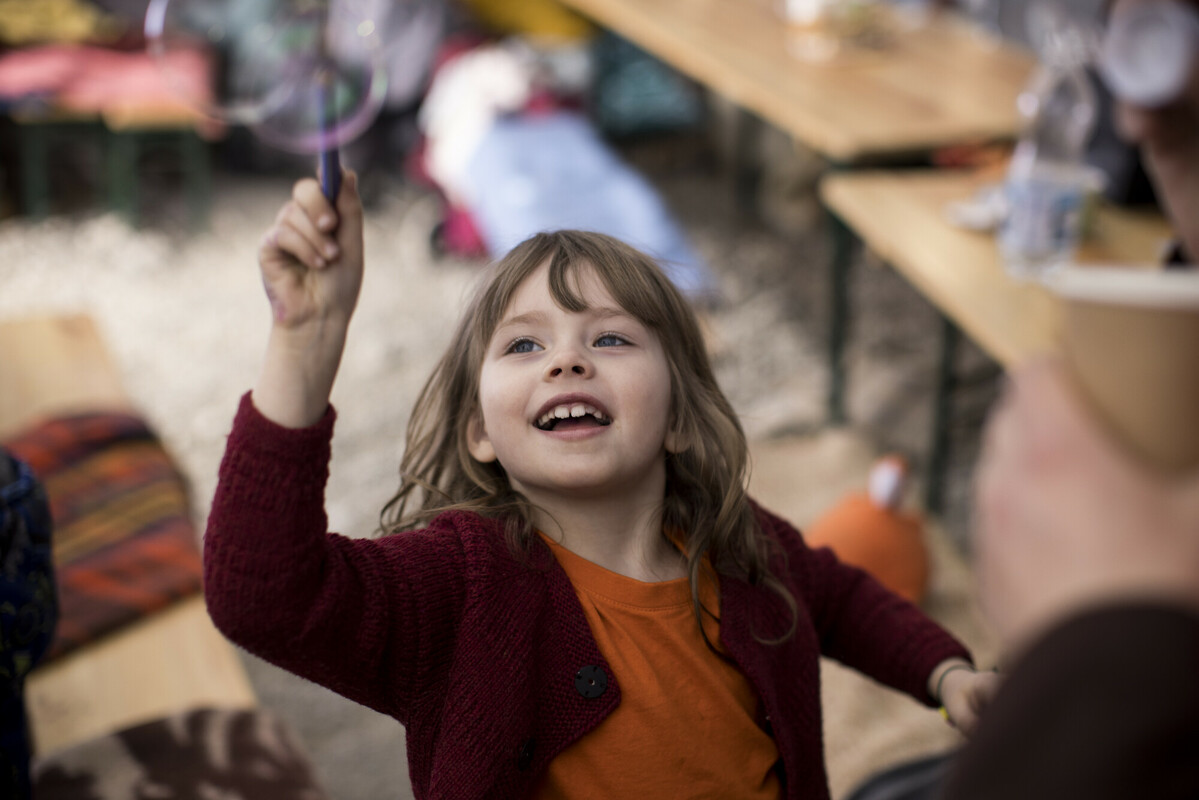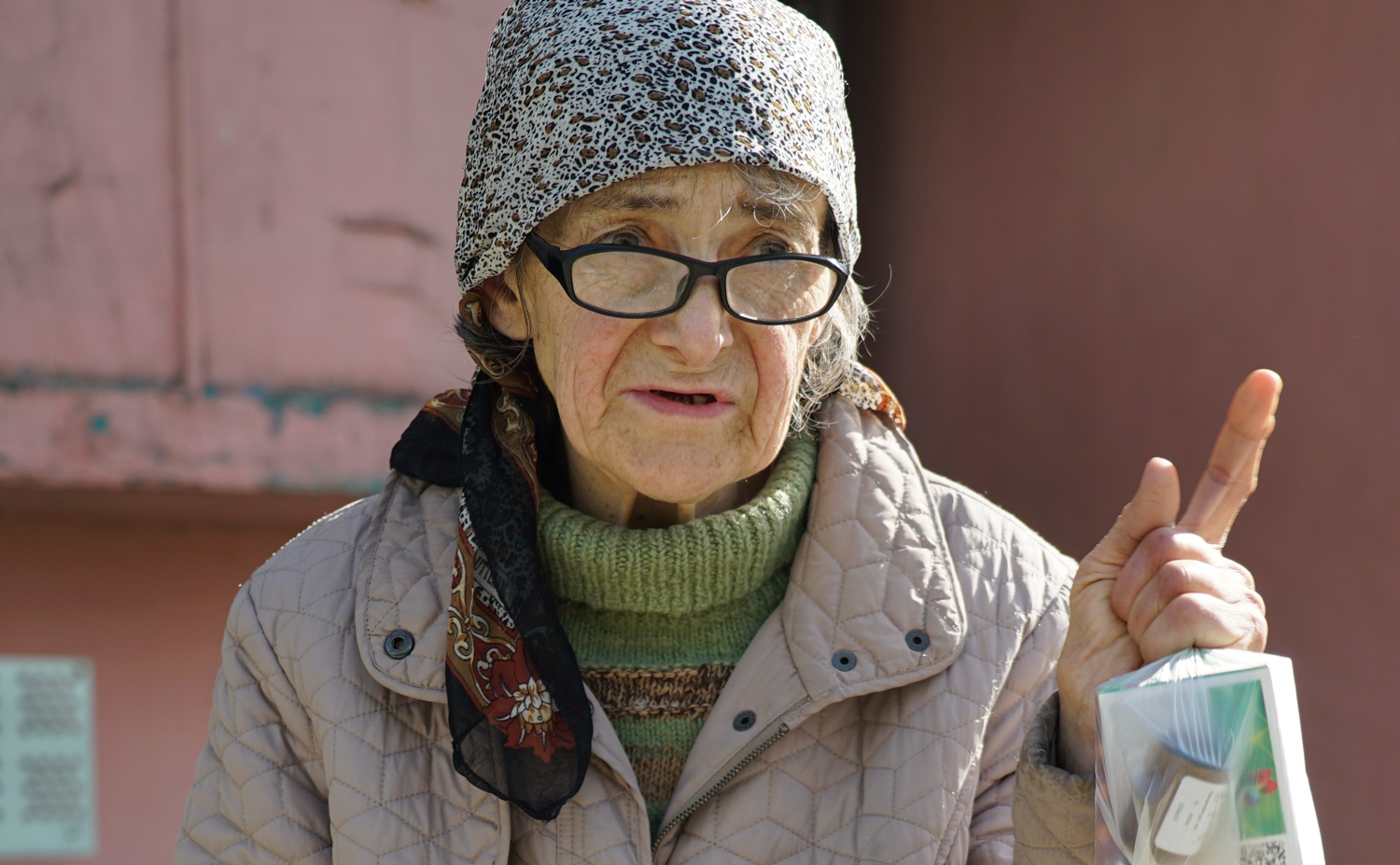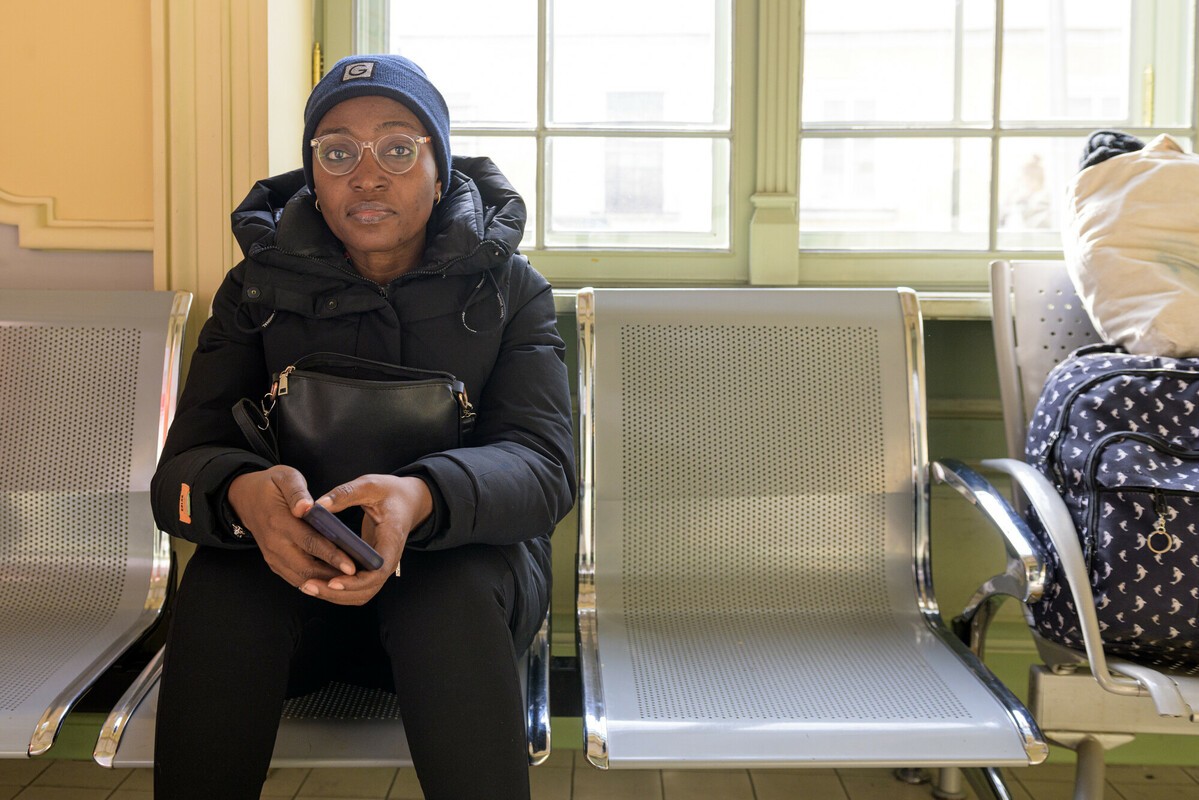“We understand how hard it is to leave your home and everything behind and run away to save your life,” said Anna, the head of an organisation called START in Lviv that received DEC funding. “It is twice as hard with children – harder to hide, harder to wait, harder to stay in shelters and to escape. But it is three times harder to do it all with children who have developmental disabilities.”
START runs a centre for children with special needs. By June 2022 the organisation had received 20 applications from displaced families. “[These children] are extremely sensitive: they have their own fears. It can be unbearable to be in dark places, in crowded places, noise is problematic too. So you can imagine relocating to a completely new environment is a massive stress,” Anna added. “Children that we are working with here at START need constant attention. We cannot say ‘Oh, this is conflict, we need to put the programme on hold,’ because this would have terrible consequences for their development.
“We are talking about the most vulnerable people in our society. The more difficult the situation a family is in, the more support they need.”
The conflict has affected the whole of society in Ukraine, causing huge disruption to every section of the population. But vulnerable groups have often been hit the hardest. From children and pregnant women and older people with chronic illnesses such as dementia, to ethnic minorities and members of the LGBTQ+ community, a variety of groups have needed extra help, either to get to safety, manage where they are or settle into new environments.
As humanitarian organisations, DEC charities always seek to prioritise those most in need regardless of race, religion or background and the response in Ukraine has been no exception. DEC charities have funded work either directly or through local organisations like START, which received a grant from HIA, a partner of Christian Aid, to cater for the needs of the most vulnerable groups.
“For me, this is responding to a protection crisis, first and foremost,” says Lisa Scharinger, Oxfam’s Interim Country Lead, Poland. “The majority of refugees are women and children, and in addition, we see a lot of elderly and people with disabilities, but also marginalised groups, including LGBTQI, plus many third country nationals and Roma, crossing the border from Ukraine.”
Children are always among the most vulnerable in a humanitarian crisis. Many have been forced to flee their homes in search of safety either elsewhere in Ukraine or in neighbouring countries. While most have been accompanied by a parent, some had to travel with grandparents or family friends, and some have travelled alone, putting them at high risk of exploitation and abuse.
“Sometimes it was very difficult because we had women arriving with a lot of children that weren't their own,” says Bogdan Simion, Executive Director of SERA, a partner of DEC charity CARE International in Romania, “and we had to make sure we had proper processes for these minors. So, it wasn’t just the humanitarian process, but also the legal process, that needed to be organised quickly.”
DEC funding in Moldova through Plan International was used for a child protection project called AVE Copiii which included the creation of a database to track unaccompanied children and enhance an existing tool for border police.

Although unaccompanied children are particularly at risk, all displaced children are vulnerable. A high proportion of refugees were children. For example 25% of refugees registered in Romania are children. DEC charities provided child- and baby-friendly spaces for displaced children to reduce stress and provide a sense of normality. Child-friendly spaces also provide childcare, allowing parents the time to seek out other services.
“We wanted to ensure that the children arriving felt safer and a bit less stressed when they crossed the border,” says Andrei Craciun, Area Manager for Save the Children Romania, “so we distributed toys to the children and had child-friendly spaces where they could spend some time playing if they want.
“It was really nice to see that even in this kind of difficult situation, with what I would call a minimum intervention, you could see the smiles on their faces on the children faces and the weight of the whole situation lifted from them.”

Action Against Hunger created mother-and-baby-friendly spaces for internally displaced people arriving in Zaporizhzhia and Chernihiv, providing nutrition advice, counselling and psychosocial support.
Fleeing the conflict without a place to go also put women at risk of abuse, sexual exploitation, domestic violence and trafficking. eLiberare, a local partner of DEC charities ActionAid and Oxfam in Romania, used DEC funds to implement an anti-trafficking protection model called KOMPASS. The project sets out to prevent and detect early potential cases of exploitation and human trafficking through awareness-raising, individualised safety plans, giving assistance to people most at risk and capacity building.
Eliberare’s President Ioana Bauer says: “Our info sessions, which were meant to be about communicating information, ended up being places where people came together, sharing what they've experienced, whether it is women who were always approached with free transportation or free accommodation offers or asked if they wanted to go work in a brothel, or whether it was the need for safety or education for their kids.”
In recognition of the high risk of exploitation facing women, children and other vulnerable groups in this crisis, the DEC also funded the establishment of a Safeguarding Resource and Support Hub for Eastern Europe. It aims to support any organisation working in the aid sector to strengthen their safeguarding policies and practice, with a focus on local and national organisations. It covers issues such as child safeguarding, safe communications, data collection and storage and discrimination by service providers towards stigmatised groups. Launched in English in June, the Hub is now available in Ukrainian, Russian, Polish, and Romanian, and links with a child protection website.
As people began to settle into their new host communities, DEC charities and their local partners in countries such as Romania started to see more and more people come forward with complex and worrying protection issues. “Right now, we have even more cases of gender-based violence,” says Loredana Urzica-Mirea, Executive Director of eLiberare. “We have started to have more and more cases of potential sexual exploitation and cases of what we call ‘indicators’ of labor exploitation. Some of the heaviest work starts now, in the next couple of months. We are seeing all these rising indicators and people are becoming more and more vulnerable.”
While many young families fled to safety, older people and those with health problems or disabilities were less able to flee their homes and often stayed behind in dangerous areas. They were left to cope with services in disarray and often without their usual family or friendship networks. DEC charities supported many older people with food and medicine, including home delivery for those that found it difficult to go out.
“In terms of food, I can't overstate how big the needs are for some of the most vulnerable populations,” says Willow Rook from Action Against Hunger, which through partners provided food assistance for vulnerable people including older people sheltering in subways and basements. “These services are vital.”
Other DEC charities have also been supporting older people with home visits by community volunteers, helping to reduce feelings of isolation, and providing them with targeted essentials.

Of course, many older people and people with disabilities were forced to flee despite the difficulties. A survey by the UN refugee agency UNHCR estimates that 17% of adult refugees from Ukraine are over 60. Oxfam helped older refugees with transport once they arrived in Poland. NGO Girls used appeal funds to pay to evacuate disabled people and their families who needed specialised transport. DEC charities also helped provide for the particular needs of older and disabled people once they arrived at their destination.
For some, the challenges were particularly pronounced. Orla Murphy, regional response lead for HelpAge International, partner of DEC charity Age International, remembers one family she met in a shared accommodation centre in Dnipro. The woman, in her 60s, had cancer, and was caring for her mother, who has dementia and her adult son who has a learning disability. “They have lost everything and were living together in one room,” Murphy says. “The team running the displacement centre were supporting her to find a hospital where she could continue her medical treatment.”
DEC funds paid for food and non-food items for older people in 39 collective centres in Ukraine via HelpAge, including targeted goods such as incontinence pads, incontinence bedsheets and cleaning materials. Funds also provided beds, hoists and toilet chairs tailored to the needs of older people and people with disabilities.
Hungarian Interchurch Aid (HIA), a partner of Christian Aid, used DEC funds to support specialist community centres and shelters in the Zakarpattia region, western Ukraine, for people with disabilities and special needs.
As well as groups with particular needs, DEC charities have also worked to help marginalised groups including ethnic minorities and the LGBTQ+ community who have faced discrimination as they have sought help.
Before the conflict, Ukraine had a diverse population including foreign nationals working and studying across the country, refugees from overseas and ethnic minorities who have lived in the country for generations, such as Roma communities.
There were instances of people of colour suffering prejudicial treatment as they fled Ukraine, in some cases being denied transport, services or permission to cross borders. For example, it took more than two difficult weeks to evacuate large numbers of Indian students who were living and studying in Ukraine according to SERA, a local partner of CARE International in Romania.

DEC charities helped those facing discrimination as they fled Ukraine. Konflict Kitchen, a local partner of ActionAid in Romania, runs a hostel specifically for Black, Indigenous and people of colour who have fled the conflict. Save the Children helped one family who had become refugees for the second time in a year, having first fled Afghanistan in 2021 to seek safety in Ukraine.
Aid workers say members of Ukraine’s Roma population, estimated to total 400,000 people, have faced discrimination when crossing into other countries, and have often found it difficult to access shelter, food, and healthcare. E-Romnja, a partner of Oxfam in Romania, focuses specifically on helping members of the Roma community and runs an accommodation centre for Roma refugees from Ukraine.
The displaced LGBTQ+ community face discrimination when trying to access health and education services or obtain civil status documentation in their new homes. Other significant issues are a lack of community support and the lack of safe space to express themselves.
DEC charity ActionAid is working with SPHERE Ukraine, a queer and feminist group that transformed itself as a humanitarian organisation to help meet the increased needs of the community it serves once the conflict escalated in February 2022.

Using DEC funds, SPHERE provides cash payments to meet LGBTQ+ people's needs as well as food, hygiene products and mental health support. SPHERE has also helped with rent and evacuation costs, clothing, animal care and help finding employment.
Ruslana Hnatchenko, Fundraising Manager, SPHERE Ukraine who is based in Hungary, says: “A lot of people moved away from Kharkiv and [as a result] they needed to go back into the ‘closet’ – they couldn't come out anymore, because they're not sure if the environment around them is tolerant or not. Or they lost connection to the people that they knew from the community because everyone went their own ways, and they are feeling lost. Even if they found some employment and a place to live, they have no safe space where they can express themselves.”
Back at the START centre in Lviv, where the children had been enjoying parachute games and sensory play, Bodhana* was picking up her four-year-old son, Kuzma* who is disabled and has delayed speech development. “I am very excited about it and extremely happy for him,” she said. “I can see his progress. Before he was refusing to repeat things, now he strives to repeat more sounds and sentences and his pronunciation has improved. Without help from this organisation, I wouldn’t be able to afford lessons for my son. I am very thankful for the help that is provided.”